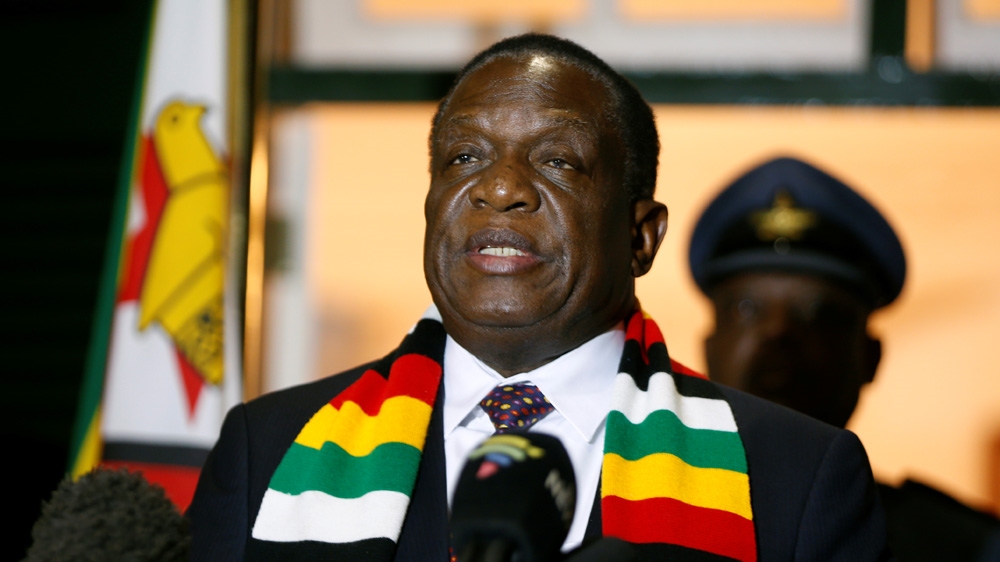‘Presidential directive’ only way to save Zim industry
Zimbabwean industries are being ‘slowly strangled’ by excessive regulatory burdens, prompting the Confederation of Zimbabwe Industries (CZI) to call for a presidential directive mandating a 70 percent reduction in choking regulatory costs.
This plea comes amid a surge in regulatory costs and licensing requirements over the past decade, weighing heavily on already burdened companies’ margins.
The CZI, the country’s largest industry lobby group, reports that a typical manufacturing firm must navigate at least nine regulatory bodies, excluding central government agencies that also demand significant regulatory amounts.
Touched by the impact of these regulations on business, President Mnangagwa, recently dwelt on these issues and said to enhance the overall performance of the economy, the Ease of Doing Business Agenda continues to be an important aspect of the country’s programming.
“In that regard., concerted efforts must be made to revisit all the areas that hinder the start or growth of all investments, whether local or foreign.”
In his first 2025 address to Cabinet, President Mnangagwa said emphasis should be on ensuring that businesses do not suffer from prohibitive regulations as well as punitive administrative licenses and fees required by ministries and other regulatory bodies.
“Fees, licences, permits and regulations should promote economic development and improve the livelihoods of the people,” he said. CZI said compliance is a significant drain on resources, requiring an average of three full-time employees and consuming approximately 10 days each month simply to process and follow up on these numerous regulatory demands.
This has seriously eroded competitiveness as demonstrated by the country’s poor performance in global rankings on the same and the loss of domestic market share to imports and loss of export markets for Zimbabwean manufactured goods, according to CZI.
CZI chief economist, Cornellius Dube, told the Parliamentary Committee on Budget and Finance this week that regulatory compliance fees consume up to 18 percent of surveyed industries’ overheads.
He highlighted the stark disparity between Zimbabwe’s 51 taxes and regulatory payments for businesses compared to just seven in South Africa and 11 in Zambia. Dube argued that regulatory authorities, empowered to collect fees even from struggling businesses, have a perverse incentive to create more regulations.
This occurs even as industry falters, while these authorities become “more liquid, with the ability to finance luxurious expenditure.”
He called for “radical deregulation” to rescue Zimbabwean businesses, proposing a presidential directive mandating a 70 percent reduction in regulatory burden and cost across all Government ministries, agencies, departments and regulatory authorities by June 2025 in order to rescue businesses. Dube further recommended a freeze on new regulations until a Regulatory Impact Analysis demonstrates their positive effect on competitiveness and benchmarks them against regional peers.
Retailers are also struggling under the weight of excessive regulation and high operating costs, it also emerged.
SPAR executive, Moses Chihuri, told the parliamentary committee that “there are no incentives to open a retail store” in Zimbabwe. He explained that opening a single supermarket requires navigating over 25 different permits and called for streamlined regulatory compliance, suggesting a single, comprehensive retail license instead of the current fragmented system requiring separate applications to agencies like EMA and local governments.
OK Zimbabwe company secretary, Margaret Munyuru, echoed similar sentiments, advocating for a “one-stop shop” for managing multiple retail licenses.
Beyond regulatory burdens, Munyuru highlighted the crippling effect of unsustainable utility costs. She revealed that OK Zimbabwe was forced to close a Bulawayo outlet due to prohibitively high operating expenses.
With approximately 70 stores nationwide, the retail giant relies heavily on generators due to unreliable power supplies.
Munyuru also pointed out the near-collapse of basic services, forcing the company to arrange private waste management for all its stores. “We need to take care of our own general service provision, which is the purview of local authorities, making it very difficult to operate in a place where we continue to pay high,” she explained.
Chihuri described SPAR’s reliance on nearly 180,000 liters of diesel per month for generators as a “dire” situation. While solar energy offers a potential solution, he lamented that high licensing fees make it too expensive.
“Whilst we’re saying we’re coming in with an intervention to generate more power, we’re being asked to pay more money,” he said.-ebsinessweekl









